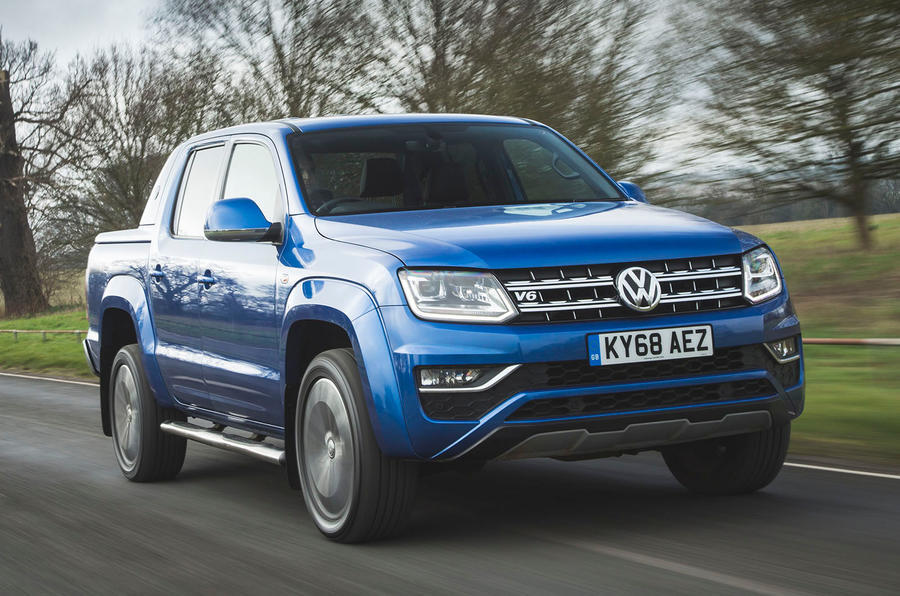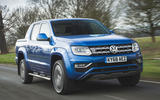Ford and Volkswagen have signed a contract to co-develop a replacement for the Volkswagen Amarok pick-up truck.
Ford's mid-size Ford Ranger pick-up truck will likely form the basis of any future platform, and may help Volkswagen reduce the costs associated with designing a replacement for the Amarok. The partnership could see a production model on sale by 2022.
The agreement, as reported by Automotive News Europe, is the first to follow the German and American brands' announcement of a 'global alliance', which could eventually expand to include electric and autonomous cars.
The agreement is likely to involve Volkswagen developing a van based on Ford’s Ford Transit platform, and the two have also signed a memorandum of understanding to “investigate collaboration” on electric and autonomous vehicles and mobility services. Both companies have said they're open to considering “additional vehicle programmes” in the future.
Ford boss Jim Hackett said the alliance will “help both companies create value and meet the needs of our customers and society” and “give us the opportunity to collaborate on shaping the next era of mobility”.
Volkswagen boss Herbert Diess added that the alliance “will be a cornerstone for our drive to improve competitiveness”.
The alliance will be governed by a joint committee headed by Hackett and Diess and does not involve any cross-ownership between the two firms.
The news follows an announcement in June that the companies were looking to collaborate on the development of future commercial vehicles, among other projects. Ford's president of global markets, Jim Farley, called this move an example of Ford’s commitment to “leveraging adaptive business models”.
Both Volkswagen and Ford are keen to introduce new electric vehicles to the European market, where strict regulations are being imposed on the development and sale of petrol and diesel vehicles. Volkswagen has previously stated its intention to produce 2-3 million electric cars by 2025.
Ford and Volkswagen, alongside BMW and Daimler, are co-owners of the Ionity scheme, which is developing a network of ultra-fast charging stations across Europe.
The alliance is not the first of its kind; last year, Honda invested $2.75 billion in General Motors' self-driving division. The Japanese and American companies plan to challenge tech giants Apple and Google with a new range of driverless taxis.












Join the debate
Add your comment
what a mix
It will be volkswagans quality and fords ugliness mixed together to make you feel "oh feels so nice in here but, boy does this look ugly." Really its cars for blind people.
5cylinderT wrote:
If its VW quality, I cant see it being any good, Ford are far more reliable and have a proven track record in the making of commercial vehicles, VW have a record of cheating and overpricing for average products, with squidgy dashboards, but even the squidgyness has taken a back seat recently with the massive amount of cost cutting VAG are making.
Citytiger wrote:
your right i really should have said german quality. volkswagen dont quite hit the mark here. but volkswagen still are better quality than a nissans and most kias (very hard to do) lets just say volkswagens boredom and fords ugliness because volkswagen really get to feel dull after a while.
VW Amarok Replacement
Anyone remember the VW Taro? it was a Toyota Hilux with a VW badge built in Germany.this is probably what's going to happen with the Amarok.but with a Ford Ranger instead,could well be built in South America as the Amarok originally was.
I think the last time
VW and Ford worked together thay produced th mk1 Galaxy and the Sharan and the Alhambra, all very good sellers in their day before the SUV became the new sheeple carrier..